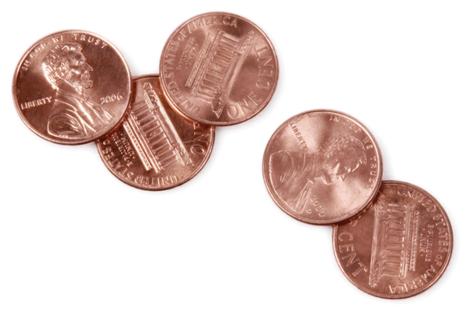Editorial: Penny dreadful? America slowly makes its move to a cashless economy
Published in Op Eds
It used to be common to see Let’s Make a Deal contestants leave the TV game show smiling after winning $100 for every coin they could pull out of their purse or pocket. But as America moves ever closer to becoming a cashless society, it’s just as likely to see contestants who couldn’t scrape up a dime.
About 41% of Americans no longer use cash to make most of their weekly purchases, according to a Pew Research Center survey. That’s a huge jump from the 24% who said they rarely used cash in 2015. Conversely, only 14% of Americans make almost all their purchases with cash, compared with 24% in 2015.
As one might expect, 71% of adults older than 50 are likely to have some cash on them, compared with 45% of those under 50. Americans with lower incomes are also more reliant on cash. Roughly 30% of people with household incomes below $30,000 a year use cash for almost all of their weekly purchases, compared with 6% among those living in households earning $50,000 or more a year.
While such statistics suggest where this country is headed, there’s less certainty as to how or when it will get there. Before it phases out bills and coins, the federal government must create a cashless replacement similar to debit and credit cards or digital wallet apps such as Zelle, PayPal, Apple Pay, Venmo, or Cash App.
America’s new digital currency would replace all coins and paper money. But unlike privately held cryptocurrency, which businesses aren’t legally required to accept, a central bank digital currency (CBDC) overseen by the Federal Reserve Board would be legal tender that can be used to make purchases in any store or restaurant.
The Bahamas rolled out the world’s first central bank digital currency in 2020. China, Japan, and Sweden have begun digital currency trials, and the Bank of England and the European Central Bank are preparing to take that step. But this country has made little progress since President Joe Biden signed an executive order two years ago announcing the government would explore the potential of a CBDC.
A good first step toward a cashless economy would be to stop minting pennies, which most people don’t use anyway. An estimated 240 billion pennies are more likely in a piggy bank or a coffee can instead of being circulated. That has created a vicious cycle in which the U.S. Mints in Philadelphia and Denver keep making pennies that don’t get spent to replace pennies that didn’t get spent. Since it costs three pennies to mint a penny, that’s a losing proposition.
Noting the cost to keep replacing unused pennies, Treasury Secretary William E. Simon 48 years ago asked Congress to stop minting them. More recently, former U.S. Mint director Philip Diehl said the penny should have been retired when vending machines stopped taking them. Coinstar machines still take pennies, nickels, dimes, and quarters, but will charge you a 12.5% service fee to count them.
Canada stopped distributing its penny coin in 2012 and subsequently removed six billion pennies from circulation. Over the next three years, it returned most of those coins to the nation’s mint, which melted them so the metal could be used otherwise. Pennies remain legal tender in Canada and can still be used to make purchases. But once a penny reaches a bank, it is taken out of circulation. That fate may await all currency.
Centuries have passed since money replaced the barter system. The first coins, bronze and copper imitations of cowry shells, were made by the Chinese around 1000 B.C. The first gold and silver coins were made around 700 B.C. in the ancient kingdom of Lydia, now part of Turkey. Minting coins spread to Greece, Persia, Macedonia, and Rome. The United States struck its first coins in 1793 at the Philadelphia Mint and issued its first paper money in 1861.
What comes next requires care. A huge issue to be resolved with digital money is its vulnerability to identity theft as phishing hackers use malware and other means to obtain private information. No data available digitally seems to remain private these days. That means if the Federal Reserve Board ever develops a digital alternative to U.S. currency, it must come up with a better security system than banks are using now.
_____
©2024 The Philadelphia Inquirer. Visit inquirer.com. Distributed by Tribune Content Agency, LLC.




























































Comments